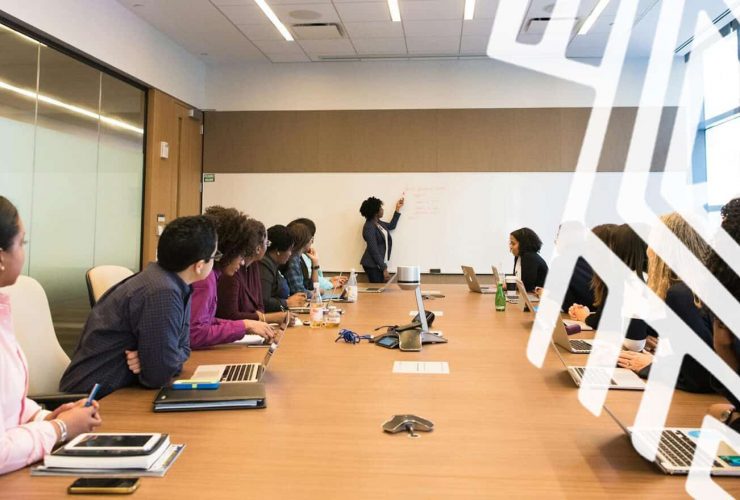The Role of Women and Youth in Broad-Based Black Economic Empowerment (B-BBEE): Unlocking Potential for Rural Communities
South Africa, a nation striving to overcome the legacy of apartheid, faces the persistent challenge of economic transformation. Central to this transformation is the inclusion of those historically marginalized, particularly women in rural areas and the nation’s youth. Broad-Based Black Economic Empowerment (B-BBEE) has emerged as a crucial policy framework for driving inclusive growth and sustainable development. However, for rural women and youth, the path to empowerment is fraught with obstacles that demand innovative solutions and a collaborative approach.
The Empowerment of Rural Women: From Subsistence to Sustainable Progress
In the heart of rural South Africa, women are the unsung heroes of local economies. They play indispensable roles in agriculture, ensuring food security, and sustaining community well-being. Yet, despite their significant contributions, they remain disproportionately disadvantaged in terms of economic participation, access to education, and control over resources.
Many rural women, particularly those in the agricultural sector, are engaged in subsistence farming, tirelessly working to provide for their families while facing a multitude of challenges. Entrenched gender norms, limited access to education, and cultural restrictions often confine them to the margins of economic opportunity. The COVID-19 pandemic further exacerbated these challenges, pushing many women, especially heads of households, into deeper economic hardship and vulnerability.
While the crucial role of women in achieving food security and poverty alleviation is widely acknowledged, the barriers to their empowerment remain deeply rooted. High illiteracy rates, socio-cultural expectations that limit their agency, and financial dependency perpetuate a cycle of disadvantage.
However, amidst these challenges, glimmers of hope are emerging. Local innovations, such as women-led agricultural cooperatives, community-based businesses, and the integration of digital technologies, are testaments to the resilience and entrepreneurial spirit of rural women. These initiatives, though often operating on a small scale, demonstrate a growing determination to overcome the limitations imposed by historical inequalities.
To truly unlock the potential of rural women, a multifaceted approach is required. Robust policy frameworks that promote gender equality must be complemented by targeted interventions:
- Capacity Building: Providing training and skills development programs tailored to the needs of rural women, equipping them with the knowledge and tools to participate effectively in the economy.
- Access to Financial Resources: Facilitating access to microfinance, grants, and other financial instruments to support women-owned businesses and agricultural initiatives.
- Mentorship and Networking Opportunities: Connecting rural women with mentors and networks to foster peer learning, knowledge sharing, and business development.
- Addressing Infrastructure Deficiencies: Investing in infrastructure, such as roads, electricity, and internet connectivity, to bridge the gap between rural communities and economic opportunities.
B-BBEE and Rural Women’s Empowerment: Opportunities and Obstacles
B-BBEE, with its focus on redressing historical imbalances, presents a significant opportunity to advance the empowerment of rural women. The policy’s mandates for promoting gender inclusivity in business ownership, management, and procurement create a framework for women to access economic resources and opportunities.
However, the realization of B-BBEE’s full potential in rural areas is often hindered by implementation challenges:
- Lack of Awareness: Many rural women are unaware of the specific opportunities and benefits available to them through B-BBEE.
- Limited Access to Capital: Accessing the financial resources needed to start or expand a business remains a significant barrier for many rural women.
- Infrastructural Constraints: Poor infrastructure, including limited access to transportation, technology, and markets, can impede rural women’s participation in the formal economy.
- Socio-Cultural Barriers: Deeply ingrained social and cultural norms can limit women’s access to land ownership, business opportunities, and decision-making roles.
Addressing these challenges requires a concerted effort from all stakeholders. Government agencies, businesses, and civil society organizations must work together to:
- Raise Awareness: Conduct targeted outreach programs to educate rural women about B-BBEE opportunities and how to leverage them.
- Facilitate Access to Finance: Develop innovative financial products and services tailored to the needs of rural women entrepreneurs.
- Invest in Infrastructure: Prioritize infrastructure development in rural areas to improve connectivity and access to markets.
- Challenge Socio-Cultural Norms: Promote gender equality and challenge discriminatory practices that limit women’s economic participation.
Youth and B-BBEE: Building a Future Workforce
South Africa’s youth, aged 18 to 35, represent a dynamic force for economic growth and social change. However, with youth unemployment rates at alarming levels, harnessing their potential is crucial for the nation’s future. The Youth Employment Service (YES) initiative, launched in 2018, is a significant step towards addressing this challenge.
YES is a business-led initiative that aims to create one million work experiences for unemployed youth, while simultaneously enhancing B-BBEE scores for participating businesses. By providing young people with valuable work experience and job readiness training, YES equips them with the skills and confidence to enter the workforce and contribute to the economy.
For businesses, participating in YES offers a win-win scenario:
- Enhanced B-BBEE Scorecard: Companies can improve their B-BBEE scorecard by creating YES work opportunities, demonstrating their commitment to youth development and transformation.
- Access to a Skilled Workforce: YES provides access to a pool of motivated and job-ready young people, helping businesses fill skills gaps and build a talent pipeline for the future.
- Corporate Social Responsibility: Participating in YES allows businesses to contribute to social upliftment and play a role in addressing the national challenge of youth unemployment.
YES123: Simplifying YES Participation for Businesses
Recognizing the complexities that businesses may face in implementing YES initiatives, BEE123 has developed YES123 – a comprehensive platform designed to streamline the process and maximize the benefits for both businesses and youth.
YES123 offers a range of features and benefits:
- Simplified YES Calculation: Our online calculator helps businesses quickly and accurately determine their YES target based on their size and B-BBEE level.
- Streamlined Registration and Onboarding: We guide businesses through the YES registration process, ensuring compliance and minimizing administrative burden.
- Flexible Participation Options: YES123 offers various participation options, allowing businesses to choose the model that best suits their needs and resources.
- Comprehensive Placement Management: Our platform facilitates the identification, placement, and management of YES youth within your organization or through third-party partners.
- Real-time Monitoring and Evaluation: YES123 provides tools for tracking the progress and impact of your YES program, ensuring transparency and accountability.
- Dedicated Support: Our team of experts is available to provide guidance and support throughout your YES journey, ensuring a smooth and successful experience.
YES123 empowers businesses to embrace YES with confidence, knowing that they have the tools and support needed to make a meaningful difference in the lives of young South Africans.
The Path Forward: Closing the Gaps
While South Africa has made commendable strides in promoting economic transformation through B-BBEE, significant gaps remain, particularly in rural areas. To bridge these gaps and ensure that both women and youth can fully participate in and benefit from B-BBEE, a more inclusive and targeted approach is needed.
This requires a collaborative effort from all stakeholders:
- Government: Develop and implement policies that specifically address the challenges faced by rural women and youth, including access to education, finance, and infrastructure.
- Businesses: Embrace B-BBEE as a strategic imperative, not just a compliance requirement, and actively seek opportunities to partner with and invest in rural communities.
- Civil Society: Play a vital role in advocating for the rights of marginalized groups, providing support services, and facilitating community-based initiatives.
By working together, we can create an environment where rural women and youth are empowered to become active participants in the economy, driving sustainable growth and contributing to a more just and equitable society.
Conclusion
The inclusion of women and youth in South Africa’s economic landscape is not merely a social responsibility; it is an economic imperative. By leveraging the B-BBEE framework, initiatives like YES, and platforms like YES123, we can unlock the potential of these marginalized groups and create a more prosperous future for all. While challenges undoubtedly remain, the opportunity for transformation is immense. Through comprehensive policies, targeted empowerment initiatives, and collective action, we can build a South Africa where rural women and youth are no longer on the periphery, but at the forefront of economic development and nation-building.




